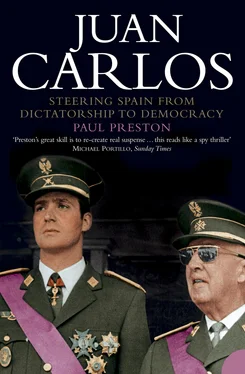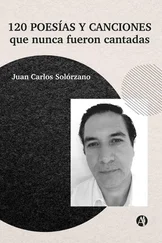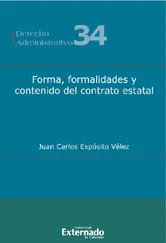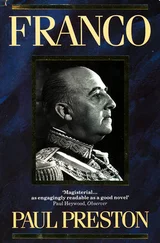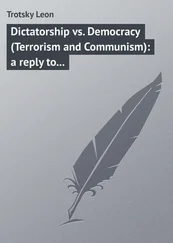At the end of term, Juan Carlos returned home to Estoril for the Christmas holidays. Towards the end of December, José María Gil Robles took his own children and Juan Carlos to the zoo in Lisbon. With great sensibility, he reflected on the power struggle between Don Juan and Franco, in which the Prince played the role of shuttlecock. Gil Robles was struck by Juan Carlos’s subdued and sombre demeanour: ‘He is still just a child and entirely likeable, but I find him serious beyond his years and even rather sad, as though he were aware of the battle being fought over him. Watching him play in the park yesterday, and later at home, I could not avoid a feeling of sorrow. He is a loveable child. When I think about his future, I feel real compassion for him. What does the future hold for this little boy who, at the age of ten, is the object of such a bitter struggle?’ 14
In January 1949, Juan Carlos returned to Las Jarillas. However, his sojourn there was dependent on the continuing ceasefire between his father and the dictator. Hostilities were once more imminent. Gil Robles complained bitterly that Franco was failing to fulfil any of the promises made to Don Juan on the Azor . Instructions had been issued that any references to Don Juan had to be to ‘His Highness the Conde de Barcelona’ which appalled the monarchists who referred to him as ‘His Majesty King Juan III’. Juan Carlos was denied the right to use his proper title of Príncipe de Asturias, and was to be referred to only as ‘His Royal Highness Prince Juan Carlos’. 15 Throughout 1949, the relationship between Franco and Don Juan deteriorated and Juan Carlos would be the victim. Although Gil Robles and Sainz Rodríguez continually urged Don Juan to recognize that Franco would never make way for the monarchy, he continued to hope, on the basis of the blandishments of Danvila.
The Caudillo made occasional token gestures to ingratiate himself with monarchists, by giving the impression that he was devoted to their cause. Although determined never to cede power to Don Juan, Franco wanted to maintain the credibility bestowed by the link with him. At the end of February, for instance, he attended a mass in El Escorial on the anniversary of the death of Alfonso XIII and was extremely anxious to secure the presence of Juan Carlos at the annual parade to commemorate the Nationalist victory in the Civil War. According to Gil Robles, ‘He is determined that the Prince should watch the parade from a special tribune, lower than his own. The troops in the march-past will be ordered to render him full honours.’ Under intense pressure from Gil Robles, Don Juan informed a disappointed Danvila that his son would not be attending the parade. 16 On 18 May 1949, at the opening of the Cortes, as if in retaliation, Franco made a long, rambling, self-congratulatory speech including, en passant , disparaging remarks about Alfonso XIII and his mother Queen María Cristina. 17 As a result, Don Juan’s more militant supporters urged Juan Carlos’s immediate return to Estoril.
Oblivious to the gathering storm clouds, Juan Carlos returned to Estoril at the end of May 1949 for summer holidays which would last for nearly 17 months. At the beginning of July, Don Juan wrote to Eugenio Vegas Latapié, inviting him to Portugal and commenting, ‘Juanito is back from Spain full of the joys of spring. He always remembers you with great affection.’ Juan Carlos himself wrote to Vegas Latapié on 17 July, repeating the invitation. After a cruise in the Mediterranean with the entire family, Don Juan left for a hunting party in Scotland on 23 August. Vegas arrived at about the same time and spent nearly a month with Juan Carlos, one day taking him to see a doctor because he had broken a finger. When asked how he broke it, the boy replied ‘thumping my sister Pilar’. 18 In opposition to the views of Gil Robles and Sainz Rodríguez, Queen Victoria Eugenia believed that Juan Carlos should return to Las Jarillas after the summer holidays. She was concerned that the boy’s life should not be turned upside down yet again although, in her determination to see her family once more on the throne in Madrid, she also inclined to Danvila’s view that Franco should be placated at all costs. Juan Carlos remained in Estoril while Don Juan dithered.
However, many of his supporters, including the Duque de Alba, Franco’s wartime Ambassador in London, expressed outrage at Franco’s exploitation of his good will. Gil Robles and Sainz Rodríguez worked at persuading Don Juan to drop the duplicitous Danvila and to refuse to allow Juan Carlos to return to Spain. He finally made up his mind after a long conversation with Gil Robles on 26 September 1949. Attempting to put some backbone into his master, Gil Robles baldly pointed out that his collaboration with Franco had severely undermined his credibility. The same man who had been moved by Juan Carlos’s sadness some months earlier now said, ‘Your Majesty must consider that the Prince is the only weapon that he has left against Franco. If you agree in the same terms as last year, you will be disarmed for good.’ Yet again it was obvious that, in Estoril, the needs of a future monarchical restoration would always be of far greater importance than the needs of the child. Don Juan was finally shaken out of his indecision when the plain-speaking Gil Robles made a prophetic warning: ‘Do not think you are indispensable. Within a few years, many will be placing their hopes on the Prince: some in good faith; others out of sheer ambition.’ 19
At the end of September 1949, Don Juan sent a note, drafted by Gil Robles, informing Franco that, since the agreements made during the Azor meeting had not been fulfilled, the Prince could not remain in Spain. 20 Franco responded threateningly in mid-October, with a lengthy note, ‘whose two principal characteristics,’ noted Gil Robles, ‘are overweening arrogance and bad grammar.’ Denying that he had made any promises on the Azor, Franco stated that the benefits of Juan Carlos’s presence in Spain were all on the side of the royal family but also made it clear that he had no plans to replace the dictatorship. His messenger, the servile Danvila, also passed on the Caudillo’s demand that, during his forthcoming State visit to Portugal, Don Juan should pay him a courtesy call at the Palacio de Queluz. Made aware by Gil Robles that this would simply lead to his public humiliation, Don Juan declined. Franco insisted, even going so far as instructing his brother Nicolás to threaten Don Juan that the Cortes would pass a law specifically excluding him from the throne. Don Juan’s snub was the only blot on a spectacular public relations success for Franco. He had arrived in Portugal on the battlecruiser Miguel de Cervantes at the head of a flotilla of 11 warships. The Caudillo’s chagrin may be imagined when he discovered that, as the Spanish fleet left the Tagus estuary, Admiral Moreno, realizing that Don Juan was wistfully watching from the shore, had ordered the ship’s company to form up and render him full honours. 21
Don Juan felt troubled that his son would not be returning to Spain. After all, he believed that it was important that Juan Carlos should be educated as a Spaniard in the country over which, one day, he was destined to reign. At the back of his mind was the preoccupation, prompted by the insidious Danvila, that in keeping Juan Carlos in Portugal he might be ruining the family’s chance of a return to the throne. Gil Robles suspected that he was seeking any pretext to send his son back to Las Jarillas. Certainly, he had made no alternative preparations for the resumption of the child’s education in Estoril. In consequence, the 1949–1950 academic year must have been a depressing one for the nearly 12-year-old Juan Carlos. It was good to be back with his family, although Don Juan was often away travelling or hunting. Having coped with separation a year before by becoming closely attached to his classmates at Las Jarillas, he had been torn away from them and now missed them. Kept together as a cohort in the hope that he would eventually rejoin them, they had been moved, for the 1949–1950 academic year, to the ground floor of the palace belonging to the Duque and Duquesa de Montellano in Madrid’s Paseo de la Castellana.
Читать дальше
